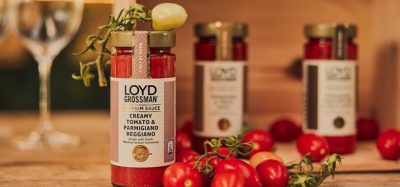Trading away our food security: the collapse of Britain’s bioethanol industry exposes a national vulnerability
Posted: 28 August 2025 | Professor Chris Elliott | No comments yet
Professor Chris Elliott warns that the collapse of the UK’s bioethanol industry is not just an energy issue but a direct threat to national food security. Exposing the trade-offs made in the UK–US deal, he explains how government policy has undermined farmers, destabilised supply chains and left Britain dangerously reliant on volatile global markets.


Many commentators, including myself, tried to flag up that the practice of scrambling for trade deals at basically any cost in the post-Brexit era threatened to compromise national food security for a few positive headlines. But a trade deal with the world’s largest market, the US, was far more than a headline; rather an absolute national priority. When the Trump–Starmer trade deal was signed it was hailed as a breakthrough in Anglo-American relations, a Brexit bonus and much more besides. The issues of hormone-treated beef and chlorinated chicken were conveniently side-stepped, for the time being at least. However, the real impacts to our national food system are now becoming clearer and the fear of total collapse of the UK’s bioethanol industry looms large as a result.
The closure of the UK bioethanol industry hasn’t made the front pages of the newspapers, but I fear the consequences will ripple through our food system…”
The cause of this is due to the recent UK–US trade deal eliminating tariffs on low-cost American ethanol imports. This has severely undercut domestic producers and with the government refusing financial support to the industry one major plant is already being forced into closure with the other large producer also on the brink of collapse.
This is something that has not attracted many headlines, especially in the mainstream media, but it should have. This sector represents an important pillar of UK national food security and in sacrificing this industry “for the greater good of the nation,” the government has further undermined the UK farming sector – especially in England – and destabilised important supply chains, leaving the UK even more dependent on highly precarious and volatile global markets. Thus, I firmly believe our national food security will be hugely impacted. I shall try to explain why.
The importance of the bioethanol industry to national security
The UK bioethanol sector purchased millions of tonnes of UK-grown wheat annually, offering a stable, long-term market for British farmers. Not only is the bioethanol used for blending with petrol, thus reducing reliance on fossil imports, but the process yields an equally important by-product known as distillers’ grains (DDGS). This protein-rich material is vital for feeding livestock, especially cattle. This dual benefit of national production of fuel and feed will now be lost, resulting in more imports of both commodities from turbulent international markets.
Yet again, the government hangs UK farmers out to dry
It’s very clear that the current government has no love for our farming sector. Inheritance tax changes and cuts in environmental subsidy schemes are two unequivocal indicators of this – alongside this very real prospect of a vital part of the industry being left in ruins. For the nation’s arable farmers, the impact of the collapse will be immediate and brutal. The collapse of a major buyer throws them into the world of extremely volatile international markets, where prices are dictated by global competition, tariffs and shipping costs rather than domestic needs. A glut of wheat in one part of the world will cause mayhem back at home.
So it’s clear for all to see, except for those in power it would seem, that a sector that should have been supported as part of the UK’s long-term food strategy has instead been thrown under the bus by a combination of trade politics and anti-farming sentiment. It’s beyond ironic that in an era of rampant food price inflation and constant warnings about global supply chain fragility, the government has helped dismantle one of the key industries that is essential for national food security.
And it’s not just the arable sector that is impacted; the knock-on effect on livestock farming is equally serious. DDGS provides a dependable, local, protein-rich feedstock. Its removal from the supply chain leaves the UK more heavily reliant on imported DDGS from the US, which carries numerous risks including heavy contamination with mycotoxins. It may also mean importing more soy, particularly from South America. Aside from the environmental hypocrisy of outsourcing from countries linked to deforestation while preaching sustainability, the economics are rather grim. Imported feed is generally costlier and more vulnerable to shipping disruptions linked to growing geopolitical tensions.
It does not take someone with a PhD in economics to work out that rises in feed costs will drive up the prices of meat, dairy, poultry and eggs. UK consumers, already battered by a cost-of-living crisis and never-ending food inflation, will end up paying for another food security policy failure.
Strategic blindness or just madness?
What makes this policy debacle especially galling is the lack of foresight. At a time when the new national food strategy is being written and experts warn about the UK not being able to feed itself the collapse of the bioethanol industry will severely weaken the resilience of the UK food system to the shocks that food security experts such as myself have warned about for years.
We need only look back to the fertiliser crisis caused by the Ukraine war to see just how fragile Britain’s food system is when reliant on imported inputs. How many understand the knock-on effects of the bioethanol plants closures on our chilled and frozen food supplies, the operation of meat plants, even the production of fizzy beverages?
Why all these effects? Because they all require carbon dioxide and over 50 percent of the UK production of this vital gas is produced by… yes, the bioethanol industry. The other major source of this vital gas was the fertiliser plants operating in the UK, but these were shut down a couple of years ago due to the energy crisis.
So where will the food industry get its carbon dioxide from? The only solution seems again to be importation, which will bring additional costs and further reduce the resilience of the UK food system.
A looming food security crisis
The closure of the UK bioethanol industry hasn’t made the front pages of the newspapers, but I fear the consequences will ripple through our food system, from our farms to the shelves in our supermarkets. The nation has lost a strategically integrated industry that united renewable energy with sustainable farming in yet another blow to national food security.
Considering all the self-inflicted blows caused by bad decisions and bad policy, the UK now finds itself exposed at every level of supply chains. A national food system without resilience, in a world of increasing geopolitical shocks and climate uncertainty, is tantamount to self-destruction.
Related topics
Food Security, Regulation & Legislation, Supply chain, Trade & Economy, World Food









